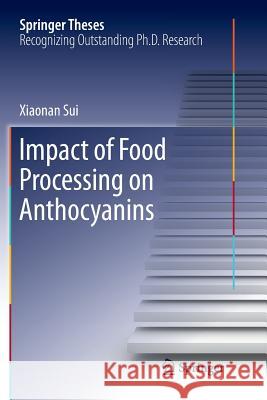Impact of Food Processing on Anthocyanins » książka
topmenu
Impact of Food Processing on Anthocyanins
ISBN-13: 9789811096662 / Angielski / Miękka / 2018 / 129 str.
Kategorie:
Kategorie BISAC:
Wydawca:
Springer
Seria wydawnicza:
Język:
Angielski
ISBN-13:
9789811096662
Rok wydania:
2018
Wydanie:
Softcover Repri
Ilość stron:
129
Waga:
0.23 kg
Wymiary:
23.39 x 15.6 x 0.84
Oprawa:
Miękka
Wolumenów:
01
Dodatkowe informacje:
Wydanie ilustrowane











